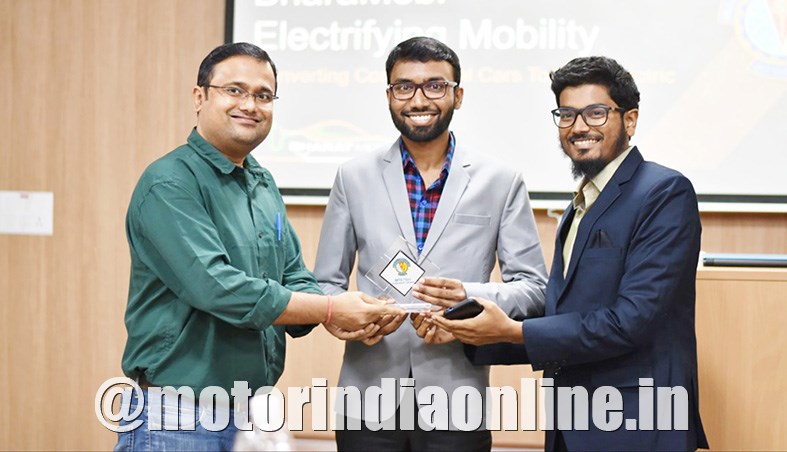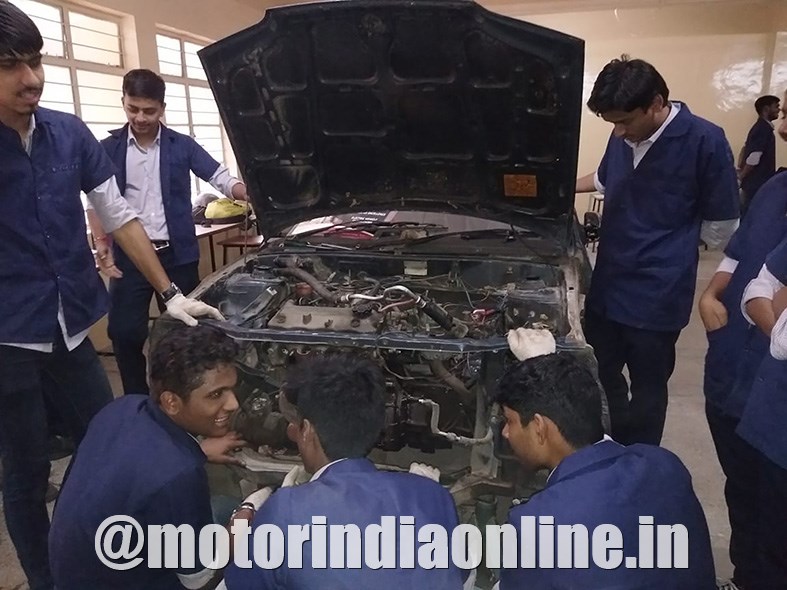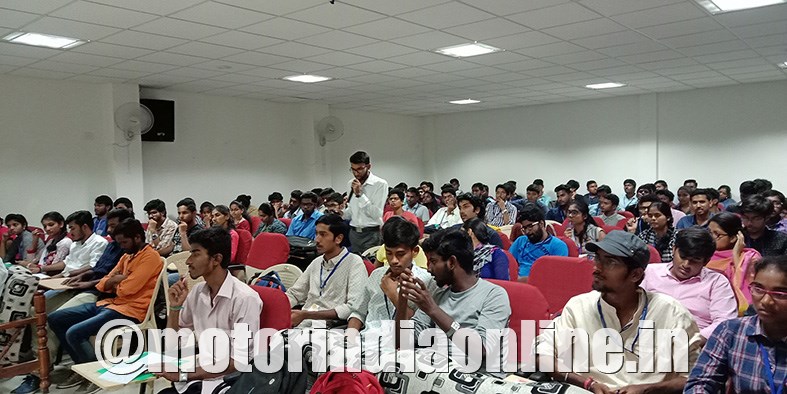Given the big-time transition to electric vehicles in the near future, Skill Shark has positioned itself as a training provider to equip automotive engineers with the skills and knowledge that will be required for this form of mobility. In this interview with Ashhar Shaikh, Co-Founder, Skill Shark, N. Balasubramanian finds out how the company goes about in its skill development program and its strategy for the future.

Excerpts:
How and why was Skill Shark founded? What was the need or problem statement that motivated you to start your company?
Skill Shark is a skill development start-up co-founded by EV technocrats Akbar Baig and myself to upskill the future workforce in sustainable technologies like electric vehicles and renewable energies, etc. Our primary motivation is to close the potential skill gaps that would arise in transition to cleaner technologies. We passionately believe that attaining sustainability will not be achievable until upskilling is focused on as well. The entire industry is racing towards achieving the EV milestones with various products and services.
While this transition happens, we are keen on ironing out the skill gap that will arise. It all started with a constructive debate between Akbar and me regarding the transition to EVS wherein one of the most noteworthy setbacks of this transition would be the job losses of millions who depend on the decades-old ICE ecosystem and supply chains. That was the spark for Skill Shark, which started to address the potential skill gap in this transition to EVs by strategic collaborations with engineering institutions and OEMs.

While on the one side electromobility is still in its nascent form in India, there is definitely huge potential for growth in the future. What according to you is the current level of skill availability and skill training requirement related to EVs in the Indian market?
As you have pointed out, the electromobility ecosystem is still in its nascence. The current trainings are fragmented. We believe that unless the trainings are addressed to masses it is difficult to achieve the EV national and state policy targets. From day one of our inception we have been a physical skill development company but the pandemic forced us all to go digital. Thus, it helped us spend the lockdown time wisely by allowing us to upskill people virtually such that they are all prepared to undergo physical EV trainings when everything is back to normal and academic institutions reopen. Currently there need to be e-mobility labs and centres of excellence in most of the engineering institutions. At the same time, we need to promote innovations and foster employability doing the same.
What are the different areas under EVs in which you offer skill training? How have you acquired or honed these skills and do you have any certification or authorisation to be able to train others in these areas?
We are offering EV training programs right from the fundamentals of EVs, emphasising on the concepts and calculations to charging infrastructure and potential business models in the industry. We have spent the past three years in the EV conversion space. And eventually we realised EV conversions will be the best use case for upskilling. We then translated our hands-on and research and development expertise about the EV ecosystem as a whole. Skill Shark’s training is open to engineering and polytechnic students and entrepreneurs. We have adopted concept-based learning and project-based learning as our approach for skill development.

That ensures 360-degree development of our participants. The positive feedback that we have got from our 7,000+ participants is something that makes us unique and pushes us further to deliver the best. We have designed our programs for fostering skills, innovation and employability as we have worked in the EV space (retrofitting-conversion of exiting vehicles into electric). I was also previously part of the Skill Development Cell and have trained over 15,000+ participants through EV programs as guest faculty. Upon realising the pain points of the potential skill gap, we channelised our expertise and experience into training modules that would help upskill millions.
Which are the industry associations or education institutions with whom you have forged partnerships? What is your strategy moving forward?
The pandemic has amplified the potential skill gap and we are committed to address the same through technology-based learning ecosystem and industry-academia collaborations. We have signed MOUs with Matrusri Engineering College, KL University, Sridevi Women’s Engineering College, Mohammed Sathak A J College of Engineering, Sri Sairam College of Engineering, etc. Many esteemed engineering institutes have hosted our EV programs such as BITS Pilani Hyderabad, SRM University KTR, VIT Vellore, etc. We are associated with international universities like Sunyani Technical University, Ho Technical University, KTU, etc. for providing upskilling services to foster innovation and employability.
We have entered into industry collaborations with many EV start-ups for providing mentorship, internship and placement support. Our aim is to create a learning and technology ecosystem focused on employability and entrepreneurship skills. While the entire world is racing towards achieving the EV milestones with various products and services, we are keen on narrowing and closing the skill gap that will emerge in the transition to EVs. Down the line we will be diversifying our skill development portfolio to cover AI, data science and mechatronics, among other trending technologies. Moving forward, we will be establishing centres of excellence for EVs in order to deliver physical and project-based training modules to upskill for four-fold impact.
Which are the geographies where you are present? How many people have you skilled till date? What are your growth targets for the future?
Currently we are collaborating with academic institutions and OEMs in India and Africa. By far, in the past few months we have upskilled over 7,000+ students and faculty from different engineering and polytechnic institutions from India and Africa. We are on a mission to upskill Millions. We have planned our on-campus and online programs accordingly to upskill more than 1 lakh participants by the end of next year. We have framed outcome-based programs for students, faculties, research scholars, engineers, project managers, entrepreneurs and interested EV enthusiasts. In the coming time we will have EV learning centres in order to deliver the physical and project-based training modules to upskill for four-fold impact.
On a broader level, over the medium to long-term, say next 5-10 years, what are Skill Shark’s growth targets and strategy for taking EV skilling in India to the next level?
As we go deeper with the current skill development trends, we see that the problems to be addressed go beyond. EVs are just the tip of an iceberg. At Skill Shark we are constantly innovating, collaborating and thinking out of the box such that we holistically evolve as a full-fledged skill development platform. In the coming years we want to contribute for EV ecosystem development in India via upskilling. We will be accelerating with effective learning methodologies like EV awareness programs, EV boot camp, EV elective courses, EV skill development program for students and faculties, EV career mentorship, EV projects, EV internship programs, EV innovations, etc. to foster skills, innovation and employability for the EV sector in India. To conclude, our aim is to create a pragmatic technology-based ecosystem focused on employability and development of entrepreneurial skills in the upcoming engineering fields. In a country where we have over 10,000 engineering institutions producing roughly one and a half million graduates a year, the ability to land a core job is sometimes seen as a distant dream. It is evident that non-employability is an equally important challenge to be addressed. This can be addressed with the right approach to upskilling.